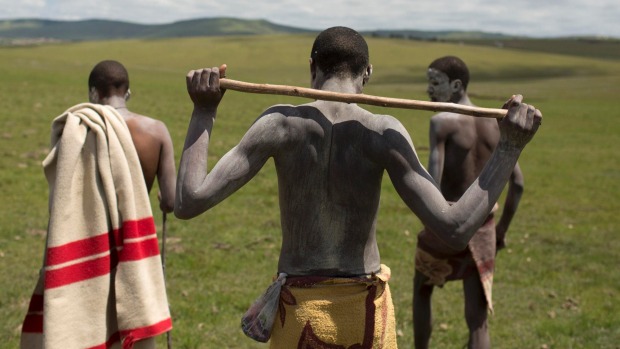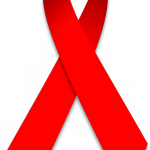Circumcision must be made safer


Boys from the Xhosa tribe who have undergone a circumcision ceremony are pictured near Qunu in South Africa
Saul Gwakuba Ndlovu
A FEW weeks ago, South Africa’s mass media carried a story saying 30 boys had died in the Eastern Cape Province in the past 12 months after they had been circumcised in the traditional Xhosa way.
Whether or not South Africa’s authorities are investigating the cause or causes of that tragedy is not our concern in Zimbabwe. What is of immediate interest to us, however, is that there is a significant Xhosa community in Zimbabwe, and that it also organises a circumcision ritual annually.
A fairly large number of Xhosa boys go through that ritual at the end of which they are regarded as men. Not until they have endured the physical pain of the traditional circumcision scalpel and have gone through the social experience of spending several days in the bush with colleagues of more or less the same age can they command the respect of the Xhosa community.
Circumcision has been practised for centuries by various ethnic and racial groups, ranging from the Semitic peoples, that is to say Arabs and Jews, to various Bantu tribes.
Some of these communities now circumcise their children in medical institutions any time before they are five years old. Many of those communities have been practising circumcision from time immemorial.
A distinction should be made between circumcision and clitoridectomy. Circumcision is the surgical removal of the foreskin of the penis and clitoridectomy is the cutting off of the small erectile part located at the upper end of the vulva (of a female person’s genitals). Clitoridectomy was practised by many oriental communities where men, particularly those of the rich upper class, used to keep harems.
It was believed that the cutting off of the clitoris reduced or virtually eliminated the woman’s libidinal urge, thus making the women of the harem very much less likely to have illicit sexual intercourse with other men such as the harem owner’s sons, friends, or servants.
Slaves whose duty was to guard harems were castrated, and are referred to in the Bible as “eunuchs”, a word whose etymological origin is the Greek word “eunoukhos” which means a bedchamber attendant.
Circumcision, meanwhile, is meant to protect the penis from various types of germs that are likely to accumulate in the foreskin especially of people who do not bathe regularly, leading to the occurrence of some venereal disease or diseases.
Among the traditionally military-oriented communities such as the Ngunis, circumcision is also meant to develop courage among young men. It is performed without any anaesthetics whatsoever, and the pain is most excruciating. It is after that body-numbing experience that the Xhosa call one a real man.
Tshaka of the Zulus came onto the politico-cultural landscape of the region occupied originally by various Nguni clans in 1816, the year after the death of his father, Senzangakhona.
He proceeded to militarise his kingdom by forcefully incorporating neighbouring weaker states and changing his people’s cultural practices, including that of circumcision which he abolished.
The practice was widely and deeply looked down upon in Tshaka’s kingdom, an attitude that prevails in the traditional villages of Kwazulu-Natal up to now.
Circumcision is a very healthy practice, especially these days with the HIV pandemic wreaking havoc in many parts of the world, particularly Southern Africa.
It has been clearly shown statistically that HIV incidence is much lower in countries or regions where circumcision is a cultural norm than in those where it is not.
That is a welcome fact to Zimbabwe’s health authorities, hence their three-or-so-year long public call for people to get circumcised and free of charge.
That call should certainly be taken seriously by those communities that have been conducting circumcision rituals under traditional conditions, with the use of traditional equipment and by the hands of traditional sex-surgeons whose qualification is only experience and not formal education.
In Zimbabwe, getting circumcised is no longer a cultural obligation of only the Xhosa boys of Mbembesi as was the case a few years ago, but that of every male adult Zimbabwean in view of the changed national and regional socio -cultural character.
The whole nation is well advised to move into the modern era by using today’s medical equipment and professional medical techniques for circumcision.
Professional medical personnel performing circumcision make sure that the physical surroundings in which the operations are done are free of germs that may cause post- surgical infection.
They sterilise not only the rooms but also the equipment plus their own hands. They also ensure that their patients are healthy enough to undergo such operations.
Those measures cannot be taken by traditional medicine men or women. Traditionalists usually circumcise their clients in winter, a season when there is less disease-causing organisms than during warm, wet ones. But some of them do perform that very sensitive operation whenever and wherever a patient or patients have availed themselves.
Would-be circumcision patients should bear in mind that in modern medical practice, it is quite likely to apply some local anaesthetics during circumcision. That would be by far more preferable to having one circumcised “raw”, with the resultant heart-wrenching pain!
Post-surgical nursing care is also much better at either clinics or hospitals than at temporary bush camps where there are neither thermometers nor stethoscopes, and, most probably, nor any antiseptic medicines either. The South African tragedy involving 30 innocent young lives could very well have not occurred had those boys been circumcised at well-staffed clinics with modern medical equipment.
Let it be taken as an example by all those who wish to be circumcised that today’s medical centres perform much riskier surgical operations than circumcisions with barely a single fatality, if any at all.
Saul Gwakuba Ndlovu is a retired, Bulawayo-based journalist. He can be contacted on cell 0734 328 136 or through email. [email protected]












Comments